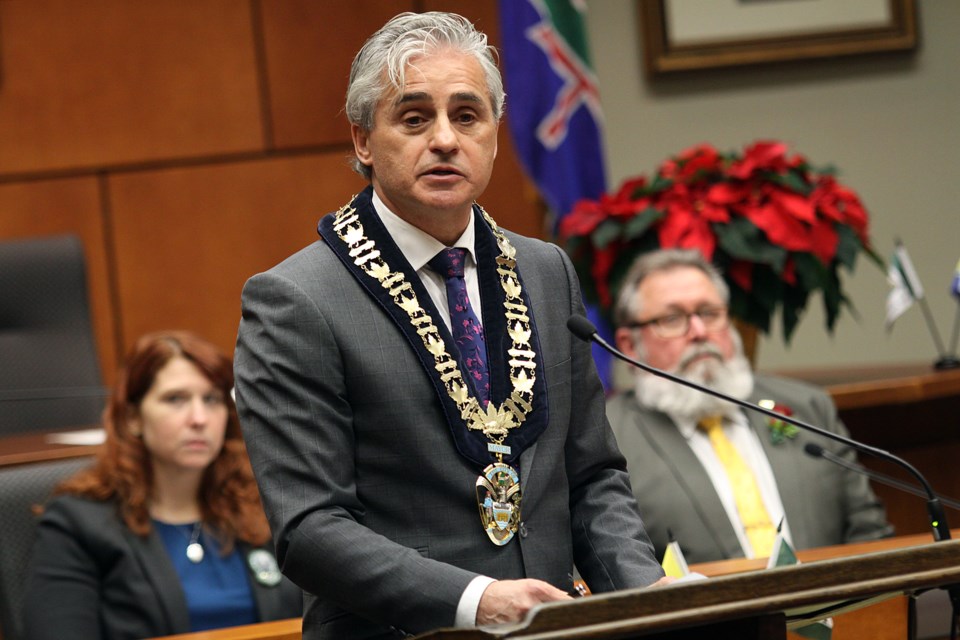THUNDER BAY — Mayor Bill Mauro feels the city Integrity Commissioner's recent findings that three members of council breached conduct guidelines should serve as a lesson.
The rulings, he said, "will bring a sharper focus to the issue, and councillors will become increasingly aware of the importance of adhering to the legislation."
Last week, integrity commissioner Brian Tario found that McIntyre ward concillor Albert Aiello breached council's Code of Conduct by taking part in deliberations over the Ontario Aboriginal Housing Corporation's proposed transitional housing project.
Aiello has spoken out against the project's Junot Avenue location, It is adjacent to the Thunder Bay Boys and Girls Club, where he serves as executive-director.
Tario also found that both Aiello and Red River councillor Brian McKinnon had broken another part of the Code of Conduct by publicly stating their opposition to a previous decision made by council regarding the housing development.
The integrity commissioner investigated the actions of both councillors after a complaint from a citizen who attended what the commissioner described as a "highly charged" meeting about the project at the Boys and Girls Club last June.
Last month, after a complaint from at-large councillor Trevor Giertuga, Tario ruled that McKellar councillor Brian Hamilton was in a conflict of interest when he voted on the designated truck route bylaw.
The commissioner found that Hamilton had a pecuniary interest in the matter which disqualified him, on the basis that he voted against the bylaw after asking the president of the Chamber of Commerce if the truck route plan would affect the cost of his operations.
In his recent ruling about Aiello and McKinnon, the commissioner referred to the Code of Conduct rule that states councillors "shall not actively undermine the implementation of council's decisions."
He said it's alright for councillors to express disagreement with a council decision, "but it is contrary to the ethical behaviour" of councillors to actively seek to undermine, challenge or work against council's decisions.
In an interview Monday, Mayor Mauro declined to pass judgment on the commissioner's rulings, but said they provide an opportunity for councillors "to avail themselves of his job, and find out from him ahead of time, if possible, if they think there may be a problem. You can call the integrity commissioner and ask for advice. So he's got a role to play. He's independent."
Mauro said finding councillors in conflict of behaviour guidelines is not new, but the recent instances show why councillors need to be aware of the rules, and what their options are.
"It's actually enabling, in the sense that the legislation allows you to identify your own conflicts, declare your conflicts, but still be a part of a public body like a municipal council," he said.
Asked if he is concerned the oversight of the integrity commissioner–who was appointed last February under provincial legislation–might hamper council from doing its work, he replied "The answer would be no. Because you may find yourselves in positions where you feel you should be declaring your own conflict, short of any ruling from the integrity commissioner. So it's just part of the deal."
The integrity commissioner said Aiello should not be allowed to vote on the housing project.
Aiello called that unfortunate, saying "no one's done more work on this than I have," and adding that he had consulted extensively with residents and other stakeholders.
McKinnon initially declined to comment on the ruling, saying he needed to hear first from the city clerk and from the city's lawyer.
